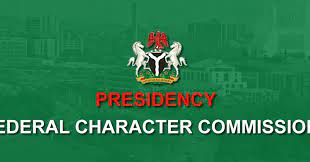In a nation as diverse and vibrant as Nigeria, the principle of Federal Character was once seen as a necessary step toward fostering unity and promoting equitable representation. Enshrined in the 1999 Constitution of the Federal Republic of Nigeria, this policy aimed to ensure that every region and ethnic group had a fair share of government appointments and resources. However, as the nation progresses into the 21st century, there is a growing consensus that Federal Character has outlived its usefulness and is hindering Nigeria’s growth potential. This feature story delves into the reasons why many are now advocating for the removal of Federal Character when making appointments for government offices.
First is the aspect of Merit Over Mediocrity. One of the most compelling arguments against the Federal Character principle is that it often prioritizes ethnicity and regionalism over merit and competence. Appointments are frequently made based on political calculations rather than the qualifications and capabilities of the candidates. This approach has led to the elevation of individuals with insufficient skills, experience, and vision into critical government positions, hindering progress and effective governance. This affects the way the leader chooses his or her parliament. Some argue that there will surely be someone from a particular religion or ethnic group that is capable but it goes beyond that. Apart from the competence of the person, the leader has to consider who he or she can work with.
Join our WhatsApp ChannelREAD ALSO: UTOMI: We Can Be Reconciled
Nigeria’s Developmental Challenges And The Urgent Need For Elite Consensus
Secondly is the encouragement of Nepotism and Corruption in the country. Critics argue that the application of Federal Character has inadvertently fueled nepotism and corruption within the Nigerian government. Rather than appointing the best-qualified individuals, decision-makers are often pressured to pick candidates from their ethnic or regional backgrounds, even if these individuals lack the requisite expertise. This practice has bred a culture of patronage and compromised the integrity of the government, leading to the mismanagement of public resources and reduced public trust in the system.
Apart from Merit over mediocrity, nepotism, and corruption, the Federal Character brings about Stifling National Unity and Integration. While Federal Character was initially introduced as a means of promoting national unity, it has had the opposite effect in many instances. By perpetuating a system that emphasizes regional and ethnic differences, the policy has reinforced divisions and created a sense of an “us versus them” mentality among the Nigerian people. This has hindered the country’s ability to forge a shared national identity and a collective vision for the future.
Also, there is the hindrance to economic growth in the country. Nigeria’s vast pool of human resources is one of its greatest assets. However, the strict adherence to Federal Character in government appointments has limited the country’s ability to attract and retain the best talents from various regions. As a result, highly skilled and qualified individuals may be overlooked in favor of less-qualified candidates from preferred regions. This hampers economic growth and development as the country fails to harness the full potential of its workforce. As it focuses on balancing representation across regions it can sometimes lead to the proliferation of government agencies and institutions, which could result in inefficiency, duplication of efforts, and wastage of resources. These additional bureaucratic structures may divert funds that could otherwise be invested in critical infrastructure and development projects that would contribute to economic growth.
Moreover, the federal character system may lead to a situation where some regions receive more significant allocations of resources without a proper assessment of their actual needs and potential for economic development. This could exacerbate regional inequalities and discourage investment in regions with significant economic potential but less political representation.
The Federal Character Downplays the Promotion of Social Justice Through Equal Opportunities in Nigeria. In a country striving for socioeconomic development and equality, it is essential to prioritize equal opportunities for all citizens. Removing the Federal Character principle would create a level playing field where appointments are based solely on competence, qualifications, and experience. This shift would encourage all citizens, regardless of their background, to aspire to and attain top government positions, fostering a sense of inclusivity and social justice.
Finally is the Building of Trust in our Institutions. Our government should value meritocracy and transparency in appointments because it will earn the trust and confidence of the citizens. By removing the Federal Character principle, Nigeria can signal its commitment to good governance and ensure that appointments are based on objective criteria, free from political maneuvering and ethnic considerations. This, in turn, can lead to a more effective and accountable government.
However, while the Federal Character principle may have had noble intentions when it was introduced, it is increasingly evident that this policy is hampering Nigeria’s progress and hindering the full utilization of its vast human potential. By shifting towards a merit-based system, Nigeria can foster national unity, promote economic growth, and ensure that the best and brightest are leading the nation toward a prosperous future. Embracing meritocracy in government appointments is not just a call for change; it is a call for a stronger, more united, and more prosperous Nigeria.

















Follow Us